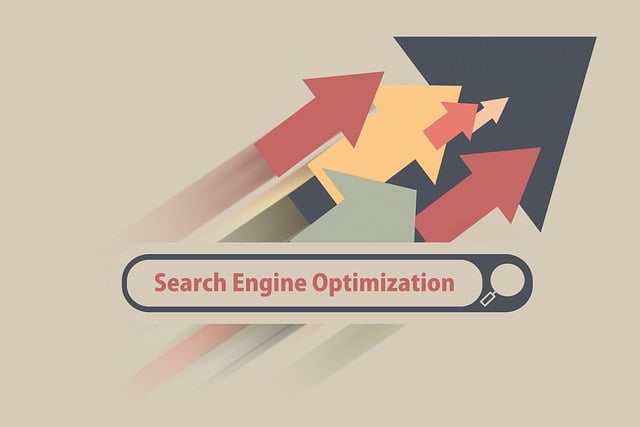Understanding and enhancing organic search rankings is vital for online visibility. Websites aim to boost positions in SERPs through relevant content, user experience, and website quality, all determined by algorithms. Key strategies include creating high-quality, keyword-optimized content, ensuring technical optimizations like speed and mobile-friendliness, building a robust backlink profile through ethical practices, implementing on-page SEO optimization, focusing on engaging content, and continuously monitoring and refining the SEO strategy based on data and industry trends. By integrating these factors, websites can naturally improve their organic search rankings over time.
In today’s digital landscape, improving organic search rankings is paramount for online success. This comprehensive guide delves into effective long-term strategies to boost your site’s visibility and drive more traffic. From understanding the fundamentals of organic search rankings to implementing advanced SEO techniques, we’ll explore key factors, on-page optimizations, content creation, backlink building, technical SEO refinements, user experience enhancements, and continuous monitoring. By mastering these strategies, you can significantly elevate your online presence and attract a steady stream of engaged visitors.
Understanding Organic Search Rankings: The Basics

Understanding organic search rankings is crucial for any website aiming to improve its online visibility. Organic rankings refer to a site’s position in search engine results pages (SERPs) when users conduct a search query without using paid advertising or promoted content. These rankings are determined by algorithms that consider numerous factors, including the relevance of content, user experience, and overall website quality. Search engines like Google strive to deliver the most valuable and relevant information to users, making it essential for websites to align their strategies with these criteria.
By focusing on creating high-quality, informative, and engaging content tailored to user search intent, websites can inherently improve their organic search rankings. This involves conducting thorough keyword research to identify terms and phrases that target audiences are searching for, then incorporating these keywords naturally into content while maintaining readability and relevance. Additionally, optimizing technical aspects such as site speed, mobile-friendliness, schema markup, and URL structure further enhances a website’s chances of securing higher organic rankings over time.
Key Factors for Long-Term Organic Success

Achieving and maintaining long-term organic success in search engine rankings is a multifaceted endeavor that requires a strategic approach. Key factors include consistently creating high-quality, relevant content that resonates with your target audience—a cornerstone of any successful SEO strategy. Regularly updating your content to keep it fresh and informative ensures it remains valuable to users and search engines alike.
Additionally, building a robust backlink profile is vital for improving organic search rankings. Earning backlinks from authoritative sources within your industry not only boosts your site’s credibility but also signals to search algorithms that your content is worth sharing and linking to. Employing ethical link-building practices, such as engaging in guest blogging, creating shareable resources, and fostering strategic partnerships, can help cultivate a strong backlink profile over time.
On-Page SEO Optimization Techniques

To improve organic search rankings, on-page SEO optimization techniques are a cornerstone strategy. This involves refining individual web pages to align with search engine algorithms and user intent. Key practices include optimizing title tags and meta descriptions for relevant keywords, ensuring content is high-quality, unique, and provides value to readers. Additionally, using header tags (H1, H2, etc.) effectively structures content, making it easier for both users and search engines to navigate. Internal linking also plays a significant role by guiding users and search crawlers to related pages on your site, enhancing the overall user experience.
Beyond that, focusing on image optimization by including alt tags and compressing file sizes can boost page load speeds, another factor that search engines consider. Regularly updating content with fresh, relevant information signals to search engines that your site is active and authoritative. Additionally, ensuring proper use of keywords throughout the content—in headings, subheadings, and body text—helps in demonstrating relevance to search queries. All these on-page optimizations collectively contribute to improving organic search rankings over the long term.
Creating High-Quality, Engaging Content

Creating high-quality, engaging content is a cornerstone of any successful long-term organic ranking strategy. In today’s digital era, search engines like Google prioritize content that offers genuine value to users, rather than simply keyword-stuffed text. To improve organic search rankings, focus on producing well-researched, informative, and unique pieces that address your target audience’s needs and interests. This might involve sharing insights, telling compelling stories, or providing step-by-step guides that help readers solve their problems or achieve their goals.
Engaging content not only satisfies user intent but also encourages social shares and backlinks, both of which are significant factors in boosting your site’s authority and visibility. To ensure your content stands out, consider using multimedia elements like images, videos, and infographics to enhance readability and accessibility. Additionally, maintaining a consistent publishing schedule helps keep your audience engaged and signals to search engines that your site is active and authoritative, further improving your chances of securing higher rankings over time.
Building a Strong Backlink Profile

Building a robust backlink profile is a cornerstone of any successful long-term organic ranking strategy. High-quality backlinks from authoritative sources signal to search engines that your website offers valuable content, enhancing its credibility and relevance in specific niches or topics. This process involves attracting natural links through exceptional content creation, guest blogging on relevant platforms, and building relationships with influencers and industry leaders.
By consistently earning backlinks from reputable sources, you improve your website’s authority and visibility in organic search results. Search engines like Google use these links as votes of confidence, which helps your site climb up the rankings for competitive keywords. A diverse backlink profile, encompassing various anchor texts and link-building strategies, ensures that your website remains resilient to algorithm updates and continues to attract targeted traffic over time.
Leveraging Technical SEO for Better Indexing

Leveraging Technical SEO is a powerful strategy to enhance your site’s improve organic search rankings. By focusing on the technical aspects, you ensure that search engine crawlers can efficiently access and index your web pages. This includes optimizing site structure, ensuring fast page loading times, implementing structured data markup, and creating XML sitemaps to guide bots through your content. These practices not only make your site more user-friendly but also signal to search engines that your website is reliable and valuable.
Additionally, maintaining a clean and organized codebase, using semantic HTML, and addressing any broken links or 404 errors are crucial steps. Mobile optimization is another critical element, as most users now access the internet via mobile devices. Search engines prioritize mobile-friendly sites, so ensuring your website is responsive and performs well on smaller screens directly impacts your long-term organic search rankings.
User Experience and Mobile Optimization

In today’s digital landscape, a seamless user experience is paramount for any website aiming to improve organic search rankings. Google and other search engines prioritize websites that offer fast loading times, easy navigation, and accessibility across all devices, especially mobile phones. Mobile optimization is no longer an option but a necessity, given the vast number of users accessing the internet via their smartphones. A responsive design that adapts to different screen sizes ensures your website provides a consistent, positive experience for every visitor, regardless of their device.
Beyond technical aspects, user experience also encompasses content quality and relevance. Creating valuable, high-quality content tailored to user queries and preferences encourages visitors to spend more time on the site, leading to lower bounce rates. Regularly updating content to keep it fresh and relevant signals to search engines that your website is an active, trustworthy source of information, further enhancing its ability to climb organic search rankings.
Continuous Monitoring and Strategy Refinement

Continuous monitoring is a cornerstone of any successful long-term organic ranking strategy. By regularly tracking your website’s performance in search engine results pages (SERPs), you gain invaluable insights into what’s working and what needs adjustment. This involves analyzing key metrics such as click-through rates, bounce rates, time on page, and conversions to understand user behavior and identify areas for improvement. Moreover, staying abreast of industry trends, algorithm updates, and competitor strategies allows you to anticipate shifts in the digital landscape and make data-driven refinements to your SEO approach.
Regular strategy refinement ensures that your content remains relevant, engaging, and aligned with search engine guidelines. It involves optimizing on-page elements like meta titles, descriptions, headers, and internal linking while also enhancing off-page factors such as backlink quality and diversity. This ongoing process of evaluation and adaptation is essential for maintaining and improving organic search rankings, ultimately driving more qualified traffic to your website over time.
